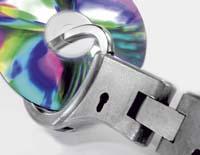DRM, the lost technological battle against "piracy"

Sharing music and movies with friends is not a new phenomenon. With Kasete and VHS we also recorded a lot for friends and friends. Although lately it has been named a crime (piracy), it is not necessarily illegal. In many countries, like Spain, sharing culture is legal, if there is no profit, and in many others it is not clear whether it is illegal. In any case, the copy of the audiovisual content should be possible, since everyone has the right to make private copies of what they have bought, for example to listen to what they have bought in the car.
Aim to avoid copies
However, since this content is preserved in digital and, above all, since there is Internet (which allows to share more massively thanks to P2P programs like eMule), manufacturers have incorporated systems called DRM (Digital Rights Management) to their products, systems to avoid copies.
One of the best known examples of these systems are the CSS (Content Scrambling System) systems used in DVD or the AACS (Advanced Access Content System) used later in Blu-ray and HD-DVD, in which the video is encrypted and in order for it to be visualized the decryption code is necessary, which the software manufacturers provide readers through the license to the hardware. In addition to these "standard" systems, there are those that have been implemented by certain companies, such as the FairPlay system used by Apple in its iTunes music store: songs with this system can only be heard or copied to Apple players, with a maximum of copies.
All in vain
But these systems have been useless because they have always been broken. Especially a nightmare for DRM systems was the Norwegian Jon Lech Johansen, known as "DVD Jon": In 1999, at only 16 years old, he broke Apple's CSS system and in 2005 FairPlay. The AACS system, much safer than the previous CSS, was broken shortly after its extraction.
Without breaking DRM systems, in one way or another, they always make the most known songs or movies make the way to the Internet. Many Hollywood movies have appeared on P2P networks for internal leaks, even before their premiere. In addition, DRM systems can always be overcome through the so-called analog hole: they can be played on a device and re-digitized by an audio recorder or a video camera, even with a certain loss of quality. Soon after its release, it is recorded in the cinemas and films are broadcast online.
To the detriment of users and producers
In addition to useless, DRMs often give problems to honest buyers. For example, many cheap or old players are only prepared for DRM standards and may have problems listening to music from companies using their own DRM. Or is that Linux users can not see the DVDs, because behind this operating system made by people there is no company that can buy the decryption license (specifically, the DVD Jon was declared innocent in the trial for CSS breakage because the jury understood that he had the right to view on Linux the purchased DVDs). And examples like this are thousands...
In addition, sometimes producers go too far with the issue of DRM. For example, Sony interposed between 2004 and 2005 a DRM system in several CDs that installed a spy program on Windows computers and changed Windows so that it did not detect it. In other cases, when an online store has disappeared, all acquired music has been left unused.
Finally, many people have gone to P2P networks, seeing that the movies and songs obtained in them offered less problems and better user experience than those acquired, and they have achieved the opposite of what DRM systems wanted to achieve.
Lost War
Currently it can be said that the DRM is dead. Aware that investment in DRM systems is useless and even harmful, manufacturers have been discarding these systems. Apple has removed FairPlay from its iTunes store and almost all online stores sell without DRM. As for the video industry, DVD or Blu-ray discs continue with the DRM, but with the DRM broken long ago, and it does not seem that in the development of online sales go that way.
There is another type of cultural content that is taking its first steps in the digital world and the internet: books. We will have to see if the publishers are going to learn from the music and film industries or if we are going to see another DRM revival (in any case transitory, sure). For the moment, the one who has the most experience in digital books, Amazon, with its e-reader Kindle, goes the way of the DRM, but with many criticisms and low efficiency...
With the loss of the technological battle, producers are putting strength in this war against copies: canons on all digital media, laws that allow to cut the Internet connection by sharing content, criminalization of the media, early awareness through the educational system, etc. I don't know if the other way was better...






